150 kids, 6 college credit hours, 1 certification: How a Nashville non-profit is expanding tech education to minority students
BIT Nashville is seeking donations and sponsors to help expand the program
Like many of her peers, 17-year-old Maya Eckles had no plans past high school. College wasn’t something she had ever considered. The youngest of eight, no one in her family has a degree.
Pursue a career in technology? Fat chance. “The only people who I knew that were into coding were weird, white boys who play Minecraft all the time.”
But now, the normally shy student is noticeably giddy, as she talks about what university she wants to attend. She plans to major in Computer Science.
“I was thinking about TSU, but Mrs. Winfree took us on a field trip to Vanderbilt, and now, I think I might go there instead,” exclaims Eckles with a smile a mile wide plastered across her face.
No matter where she decides to attend, the high school student will have a head start. Eckles earned six hours of college credit from Tennessee State University — a Nashville HBCU — and a Google IT Certification this year.
Maya ‘s story is one of 150 unique stories that came out of LocalTek Thrive initiative, a three year pilot program that provides technology curriculum, college credit — 3 credit hours for App Development and 3 credit hours for Coding Languages — and an industry certification to all juniors at Republic High School, a charter school located in north Nashville.
The program was developed by Blacks in Technology Nashville — a nonprofit that aims to expand tech education to minorities in the greater Nashville area. According to BIT President Holly Rachel, 91-percent of the students at Republic High School are non-white and nearly 50-percent are financially disadvantaged.
“Most of the technology curriculum on the market are focused on coding languages, but we want students to understand that there are many opportunities in the industry,” Rachel says.
LocalTek and TSU collaborated on the curriculum which Rachel says was designed to be a survey of technology and included modules on coding languages, healthcare analytics, data science, website and app development and machine learning. The course was mandatory.
“If we had given students the option, very few would have enrolled,” says Lena Winfree, vice president of BIT. “We wanted to make them aware of all the opportunities out there. Many of them realized tech was a lot more than they thought.”
BIT conducted a survey with all 150 juniors at the beginning and end of the school year. In the initial survey, less than 25-percent of students were “interested in pursuing a career in technology”. Fast-forward 9 months, and more than 50-percent of the students surveyed said they were interested in pursuing a career in technology and 90-percent said they were more aware of technology careers than before.
“There isn’t a career tech doesn’t touch”
Not all students caught the coding bug, but that wasn’t the intent.
“The goal was not for every kid to say they wanted to major in Data Science or Computer Engineering,” says Winfree. “The goal was to expose students to different careers in technology and give them skills that are applicable across a wide variety of industries. There isn’t a career tech doesn’t touch.”
17-year-old Carmen Martinez who watches the hit show Selling Sunset on Netflix “all-the time” has no desire to pursue a career in technology. She aspires to be the next Heather El Moussa or as she puts it “the number one real estate agent in Nashville.” However, she will use many of the skills she learned this year in the LocalTek program to pursue her passion.
The outgoing Latina student logs into her Canva account, “I can make flyers and social media graphics for all my open houses,” she says as she shows off several of her work samples. “Plus, I’m going to need to build a website, and I’m not going to pay someone a bunch of money to make it. I can build it myself.”
Excited and not going to be outdone, Eckles interrupts and proudly pulls up the website she built for her brother’s dog breeding business. It’s impressive and easily better than 90-percent of the websites you see made by local businesses.
“My brother paid me $500 to build him a website,” she says confidently. “I’m going to be building some for some of his friends this summer too.”
“This is what it's all about," says Dr. Charles Apigian, the executive director of the Belmont Data Collaborative, a center dedicated to increasing data literacy across Belmont’s campus and solving real-world problems with data. “These students recognize that their skills can be used in a variety of careers.”
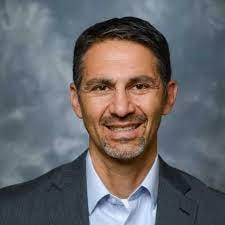

Apigian, who is also a BIT board member, organized a hackathon for all of the students in the LocalTek program. During the September hackathon the students analyzed real, historic data from AirBNB to determine what makes a Superhost. Students used the conclusions they drew from the data to advise other hosts on how to increase their rating and earn more revenue.
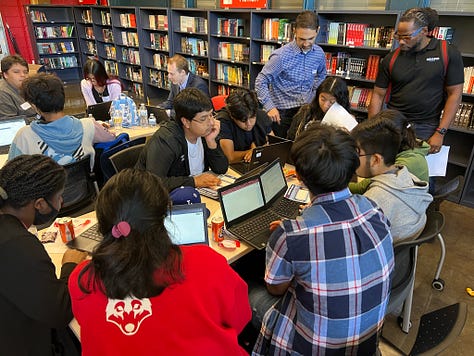
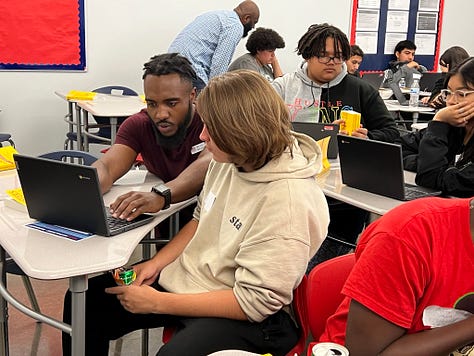
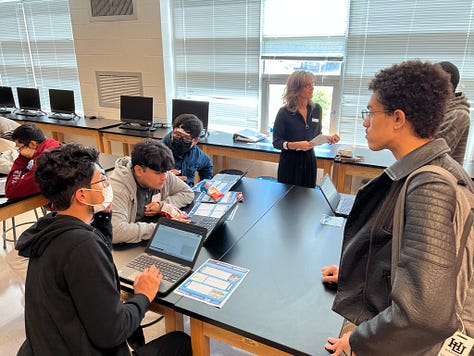
“Access does not always mean equitable”
It wasn’t easy to pull off this program. Rachel and Winfree struggled in the beginning to find partners willing to donate and fund the first year.
“People told us $50,000 was too much,” says Rachel. “But that money covers the curricula, dual enrollment costs, certifications, equipment and field trips for all 150 students.”
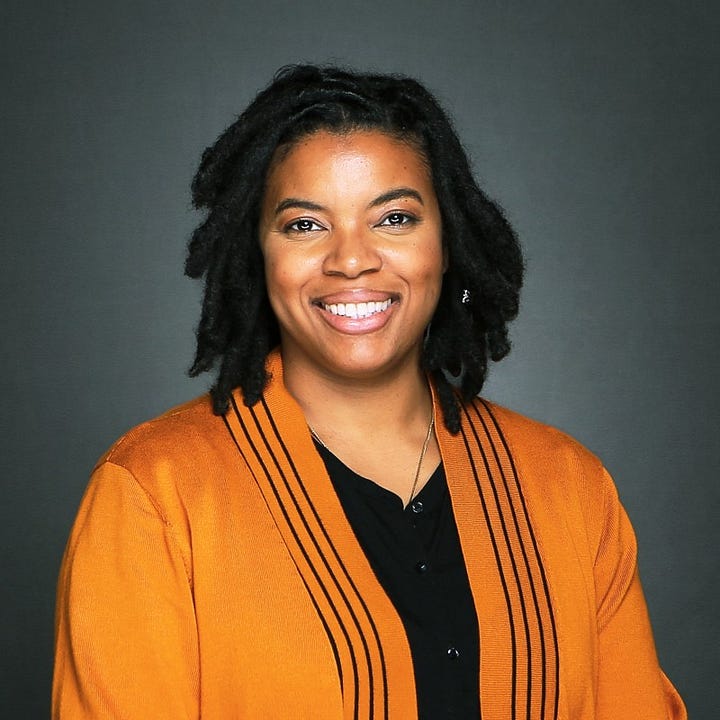

Ultimately, Dell, TSU, and Nashville State Community College stepped up to the plate and helped fund the program.
Then, there was the issue of computers. BIT was told they didn’t need to purchase computers for the students because RHS received Chromebooks for remote learning during the pandemic.
But the Chromebooks, or as Rachel refers to them “internet-enabled paperweights” weren’t cutting it.
The Chromebooks were outdated and could not handle operating multiple open source platforms concurrently — like Python and TensorFlow — which are needed to teach coding languages.
“Lena and I learned a very valuable lesson: Access does not always mean equitable.” says Rachel. “ Yes, RHS had laptops but they weren’t the same type of laptops students in Williamson County or students were given. Yes, RHS has the internet, but it was slow.”
“You can’t expect the same outcomes if access is not equitable,” adds Winfree.
The BIT executives reached out to Dell and Belmont Data Collaborative to help them remedy the situation. The two generously provided desktops for a computer lab at RHS.
BIT has secured some of the funding needed to kick off year two in August, but is looking for partners to scale the program and expand it to other local north Nashville schools like Pearl Cohen and Whites Creek — whose student populations are more than 50-percent non-white.
How to get involved with BIT
Volunteer: Sign-up to receive emails on upcoming volunteer opportunities.
Host a field trip: If you are a Middle Tennessee tech company and would like to host RHS students for a field trip, please email Lena Winfree vp@bitnash.org or Holly Rachel pres@bitnash.org.
Donate: Support the LocalTek Thrive program.




